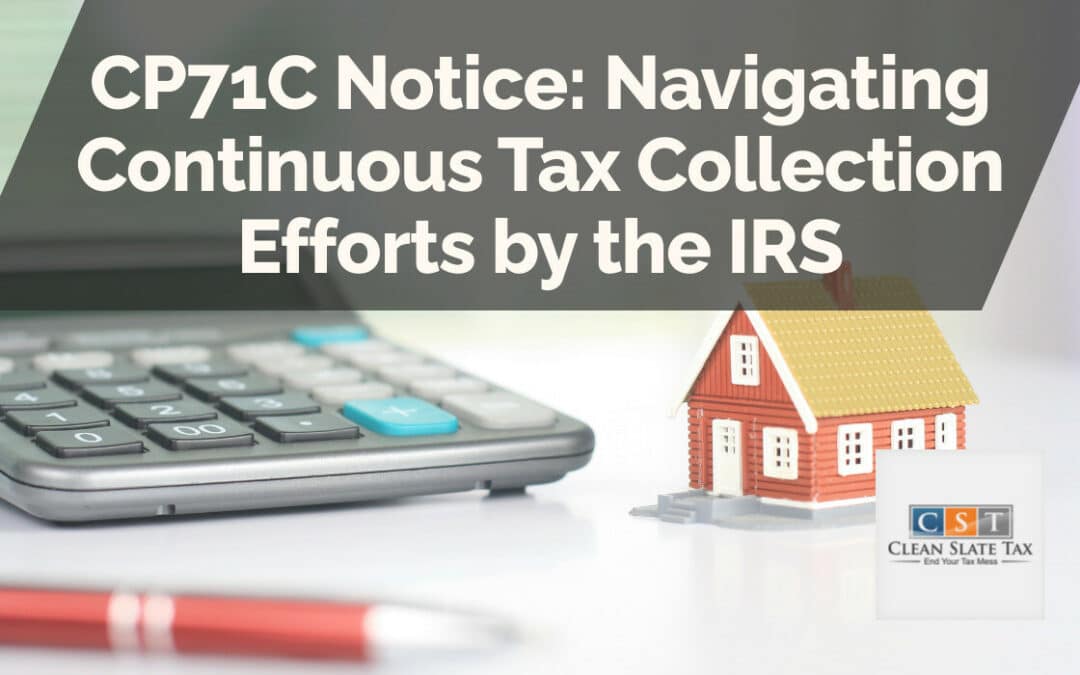The Intricacies of the CP71C Notice
Unraveling the complexities of tax issues is an endeavour many individuals find challenging. One such issue that may cause confusion is receiving a CP71C Notice from the IRS. This communication typically indicates that there is an outstanding tax liability, which has stirred the authorities to initiate continuous levies on your assets. So, what does this mean, and how should you navigate through this situation? Let’s decipher the issue in detail.
Understanding the CP71C Notice
The CP71C Notice, also known as the Annual Reminder of Balance Due, is a communication issued by the IRS to taxpayers who have outstanding tax liabilities. This notice informs you about unremitted taxes and warns about potential levy action. The key to addressing this is understanding the implications, thus developing a strategic plan to resolve the situation.
Why You Received a CP71C Notice
The IRS issues a CP71C Notice when there’s a balance due on your account, and previous attempts to notify and resolve the issue have been unsuccessful. These reminders are typically dispatched annually to keep taxpayers informed and urge them towards remedy actions.
How to Respond to a CP71C Notice
|Once you get a CP71C Notice, immediate action is vital. Ignoring these notices can lead to continuous levy action, affecting your assets or income. Here’s a step-by-step guide on what actions you should consider.
-
Verify the Information
Check whether the information outlined in the notice is accurate. Familiarize yourself with the tax period in concern.
-
Understand the Implications
Understand the consequences of ignoring the notice. Make sure you are aware of the possible levy implications to tackle the situation strategically.
-
Contact a Tax Professional
If the tax issue seems overwhelming, seek the advice of a tax professional. They can help create a strategy to manage the tax debt properly.
Frequently Asked Questions
What should I do if I cannot pay the total amount due?
If you cannot pay the total amount due, you may be eligible to set up a payment plan with the IRS. This can be negotiated with the help of a tax professional.
Can the IRS seize my assets if I ignore the CP71C Notice?
Yes, failure to respond to a CP71C Notice can lead to the IRS initiating a levy on your assets or income. Swift action is advised to prevent such a scenario.
What if I disagree with the amount the IRS claims I owe?
If you disagree with the owed amount, it’s advisable to contact the IRS immediately and possibly seek the help of a tax professional.
The Road Ahead
Navigating the path of tax issues, specifically when a CP71C Notice is received, can be daunting. However, understanding its implications and taking prompt action to settle the dues can save you from distressing consequences. Remember, tackling tax-related matters promptly and diligently ensures your financial safety and peace of mind.





